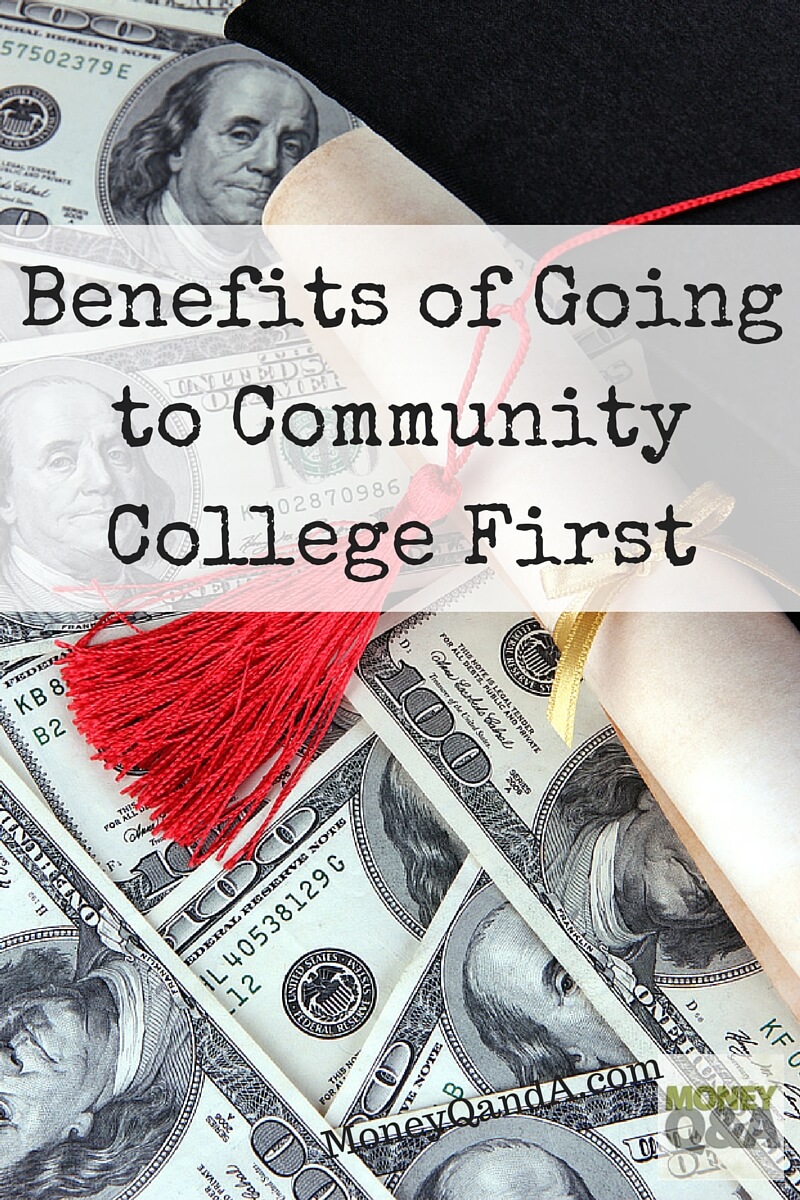
Nowadays it’s almost mandatory to have a Bachelor’s degree to qualify for a decent job. It’s like a Bachelor’s degree is the new high school diploma. But, taking on tens of thousands of dollars just to get a piece of paper that will qualify for your dream job isn’t always ideal or financially sustainable.
Fortunately, community college is becoming an increasingly popular option for people who want to save money on the way to getting his or her degree. You may want to consider going to a community college first before earning your Bachelor’s degree.
Why You Should Go to Community College First
Here are four things to consider when choosing between community college first and university classes:
More Time to Decide Your Major
If you’re not 100% sure what you want to get your Bachelor’s degree in, then spending 2-3 years in community college can save you a lot of money and headache compared to slogging through four years of undergraduate study, only to hate your BA after the first five years of your chosen career path.
All too often, people – especially fresh high school graduates – think they know what they want to do, but after taking a few courses in that subject, they decide to change their major. Although going into a university as an undeclared major is an option, the problem is universities mix general education (GE) and major core classes into students’ academic schedules starting in freshman year.
So, if you start out as an economics major then realize in your junior year that you’re not a huge fan of math and want to pursue political science instead, your non-GE economics classes become effectively useless for your degree (unless you decide to get a minor). On top of this, you’ll need to stay an extra semester or year to fulfill the major class requirements for your new degree.
Why not avoid the frustration and spend a couple of years completing all of your general education requirements at a local community college instead? It’ll give you more time to decide what BA you really want and get the not-as-fun GE classes out of the way so you can take more interesting, major-specific classes when you ultimately transfer.
Save Money on Tuition
There’s a lot of doom and gloom news surrounding higher education these days. From the student loan bubble hitting the $1.2 trillion mark last year to the cost of college doubling every nine years on average, it’s hard to feel optimistic about college these days.
Is there a silver lining? Yes – community college tuition costs one-third of 4-year public, in-state university tuition on average, and parking is generally much cheaper as well. You still get access to FAFSA and grants and scholarships in community college. The only difference is how much you’re paying for your classes.
Since you have to take general education classes regardless of where you go for your degree, wouldn’t it be great to pay less than $100 per unit instead of racking up thousands of more dollars in student loan debt with classes costing several hundred dollars per unit?
Improve Your GPA
Whether you’re just starting out in college or you left a while ago because of a job opportunity/poor grades/etc., going to community college is a fantastic place to take lower-level general education classes to boost your GPA. Many community college classes can be just as academically rigorous as university classes, but it’s a lower-risk (financially) chance to bring up your grades.
With a higher GPA, you can find better universities to transfer to. For instance, if your grades weren’t exactly stellar in high school, then you might be able to transfer to universities that otherwise rejected you in your senior year in high school because more emphasis is placed on community college grades for incoming transfer admissions.
In addition to increasing your chances of transferring to a reputable university, you also have the chance to increase your GPA enough to qualify for academic scholarships. Sure, community college classes aren’t too expensive, but every penny saved on higher education equates to less student loan debt after graduation, so apply for scholarships!
Actually Get to Know Your Professors
The problem with university classes is many of them enroll 50-100+ students, making it difficult to get to know your professor on a personal level when there are so many others vying for their attention. Luckily, community colleges generally lack giant lecture halls and instead have smaller classes of 15-40 students per professor.
This allows you to ask your professor for help with the class and get personalized letters of recommendation for future academic and professional endeavors, while at a university your professor may not ever learn your name.
Did I miss any? What are some of the reasons that you recommend going to community college first? Is it more than just the cost savings?


It doesn’t matter where you start but where you graduate from. pending two years at a JC, then transferring in to a university will deliver the same diploma as that of a 4-year university student. To your point, I agree. Getting to know your professors is a huge benefit of community colleges.